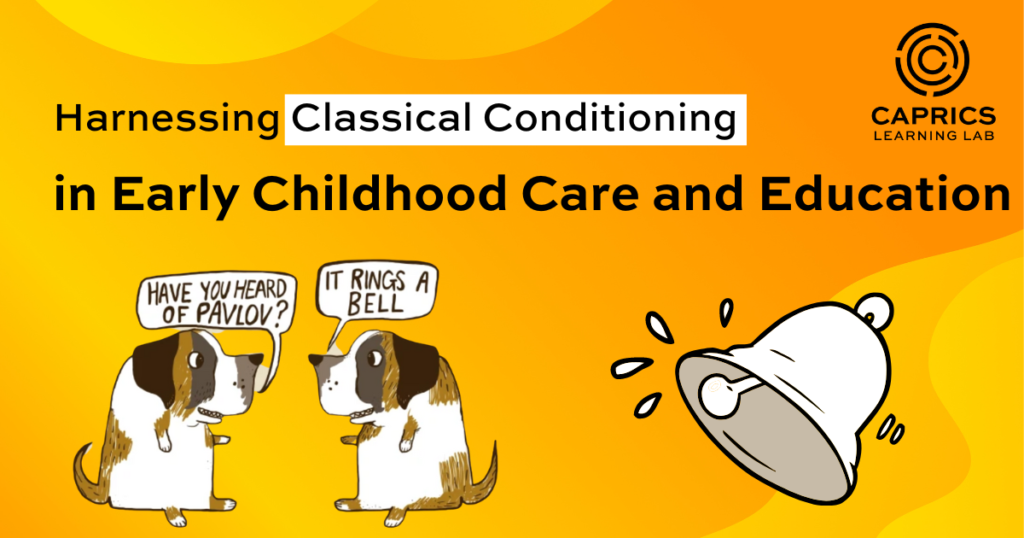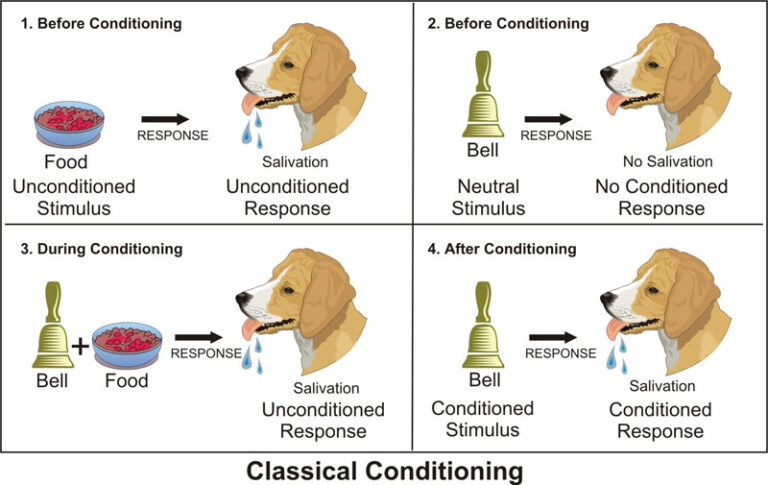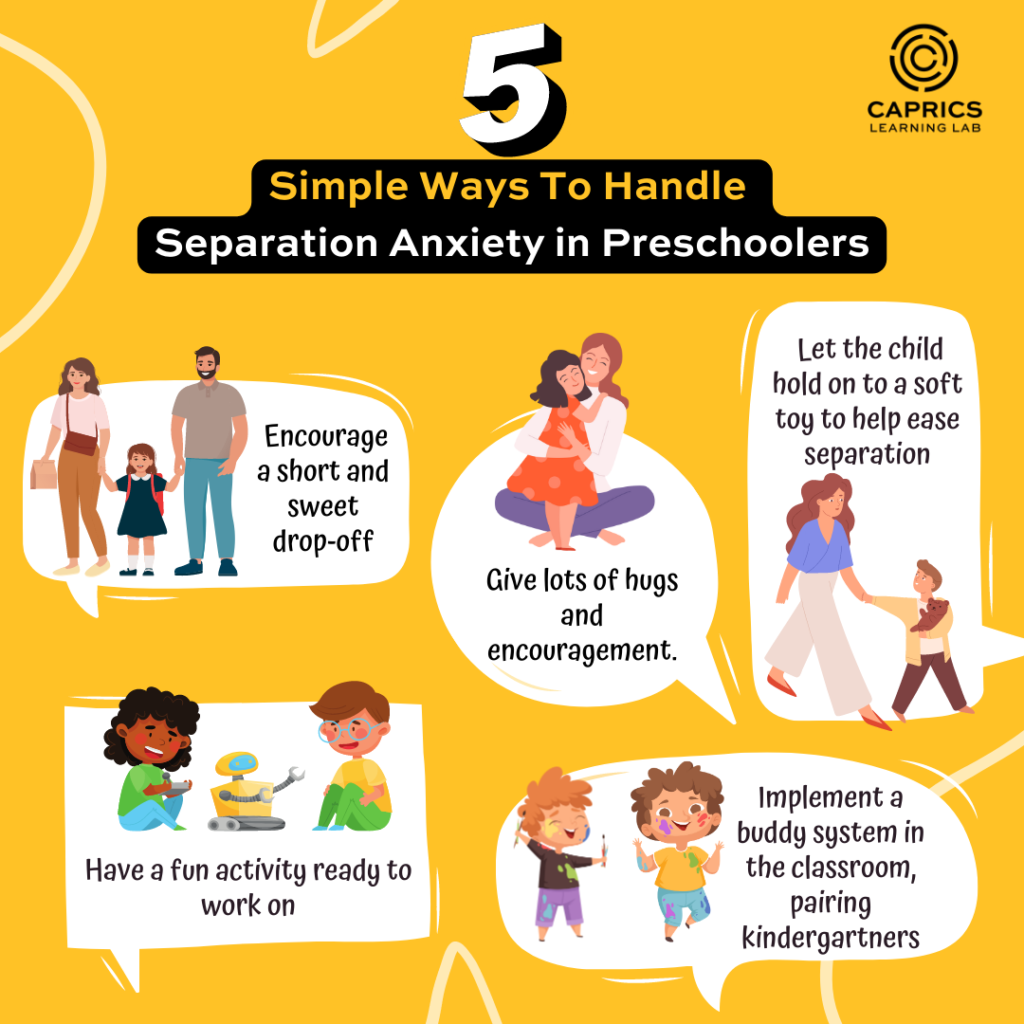
Introduction
In the realm of education and personal development, understanding the diverse range of learning approaches holds the key to unlocking the potential for optimal learning experiences. Familiarity with different learning approaches empowers both educators and learners to optimize the learning process, foster inclusivity, and promote continuous personal and professional development. The three key learning approaches are:
- Classical conditioning (associations between stimuli leading to a conditioned response)
- Operant conditioning (learning through consequences of behaviours)
- Observational learning (learning influenced by modelling and imitating others)
This comprehensive article provides an overview of classical conditioning, emphasizing its application and relevance in the context of early childhood education, supported by real-life examples.
Exploring Classical Conditioning:
Classical conditioning is a type of learning that was first experimentally demonstrated by the Russian physiologist Ivan Pavlov in the late 19th century while conducting a series of experiments with his dog. Pavlov’s classical conditioning is a fundamental concept that explores how associations between stimuli can lead to learned responses. This learning approach involves forming associations between environmental stimuli and naturally occurring stimuli, leading to the acquisition of new knowledge or behaviors.
By incorporating principles of classical conditioning and leveraging associations between stimuli and outcomes, educators and parents can enhance learning experiences, effectively manage behaviours, and promote the holistic development of young learners.

For Teachers:
Utilizing classical conditioning can be helpful in addressing separation anxiety and helping children transition smoothly when entering school. Here’s how you can do it.

For Parents:
Pretend play is yet another classic use of the conditioning approach which can be used to comfort kids and reduce their fears.
- Introduce a pretend doctor playset and associate it with positive experiences.
- Engage in imaginative play, taking turns being the doctor and patient, using the playset to simulate medical check-ups and procedures.
- Accompany them to routine check-ups or minor medical appointments, bringing the pretend doctor playset along as a source of comfort and familiarity.
Conclusion:
As educators and parents, it is crucial to recognize the profound impact of experiences and environment on shaping their learning, behaviour, and overall development, emphasizing the importance of providing nurturing and stimulating surroundings for optimal growth.




